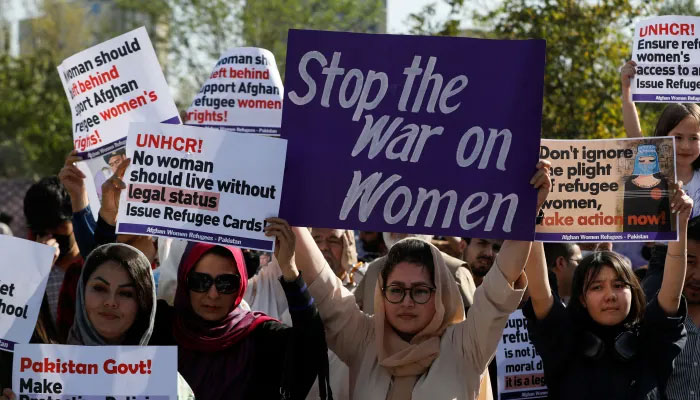In Pakistan, women often face significant challenges, from domestic violence and harassment to economic inequality and lack of legal protection. To combat these issues, Women Protection Centers (WPCs) have been established across the country, providing essential services and creating safe spaces for women in need. These centers play a vital role in supporting women and ensuring their safety, offering a beacon of hope for those seeking refuge from violence and discrimination.
What is a Women’s Protection Center?
A Women Protection Center (WPC) is a specialized facility designed to offer protection, support, and rehabilitation for women who are victims of domestic violence, abuse, or exploitation. These centers are typically government-run or supported by NGOs and operate under Pakistan’s legal and social protection systems. The services they offer are holistic, addressing not only the immediate needs of women but also their long-term physical, emotional, and psychological well-being.
Services Provided by Women Protection Centers:
-
Shelter and Safety: WPCs provide a haven for women who have been subjected to violence or abuse. These centers offer temporary accommodation where women and children can live without fear of harm. The facilities are designed to provide a secure and supportive environment.
-
Legal Aid and Counseling: Women who seek help at these centers often need legal assistance to navigate the complexities of domestic violence cases. WPCs provide legal counsel, helping women understand their rights and guiding them through the legal process. Additionally, psychological counseling and emotional support are offered to help women cope with trauma.
-
Vocational Training and Rehabilitation: Many Women Protection Centers also provide women with the tools to regain independence. This includes vocational training programs, educational support, and financial literacy workshops, allowing women to become financially independent and empowered to rebuild their lives.
-
Health and Well-being Services: These centers often have medical staff available to provide necessary health services, including mental health care, to address the physical and emotional scars of abuse. They may also offer childcare services for women with young children.
-
Advocacy and Awareness: In addition to direct services, WPCs also advocate for women’s rights and raise awareness about gender-based violence and discrimination. They often collaborate with local law enforcement agencies and social organizations to create a broader network of support for women.
The Role of Maryam Nawaz and Hina Pervaiz Butt:

The success of Women Protection Centers in Pakistan has been significantly influenced by the relentless efforts of political leaders and social activists, with figures such as Maryam Nawaz and Hina Pervaiz Butt playing an instrumental role in championing women’s rights and safety. Maryam Nawaz, daughter of former Prime Minister Nawaz Sharif, has consistently worked to raise awareness on the issue of women’s protection, using her platform to advocate for laws and policies that safeguard women against violence.

Maryam’s influence has been crucial in establishing a more supportive environment for women across the country. Her commitment to social change is reflected in her efforts to support the infrastructure of Women Protection Centers, ensuring that such initiatives not only receive the attention they deserve but also the necessary resources to function effectively.
Likewise, Hina Pervaiz Butt, a prominent member of the Provincial Assembly of Punjab, has been a fierce advocate for the rights of women, playing a significant role in pushing for the development and expansion of Women Protection Centers. Hina’s dedication to improving women’s access to resources and services for their safety and empowerment is widely acknowledged. She has been at the forefront of creating policies that provide women with the tools they need to break free from cycles of abuse and violence.
Through their tireless advocacy, Maryam Nawaz and Hina Pervaiz Butt have helped bring attention to the crucial need for safe spaces and protective measures for women in Pakistan. Their leadership continues to inspire and drive the expansion of Women Protection Centers, ensuring that these centers are not just a place of refuge but also of hope and empowerment.
Challenges Faced by Women Protection Centers:

Despite the progress made in establishing Women Protection Centers, several challenges remain. One of the main issues is the lack of awareness among women about the existence of these centers and the services they provide. Many women in rural or remote areas may not have access to these facilities or may not know how to seek help due to cultural stigma or fear of retribution.
Furthermore, funding and resources for these centers can be limited, affecting the scope of services they can offer. Many centers operate in overburdened conditions, which can impact the quality of support provided.
The Role of Government and NGOs:
The Pakistani government, along with various non-governmental organizations (NGOs), has played a crucial role in the establishment and functioning of Women Protection Centers. Provincial governments, especially in Punjab, Sindh, and Khyber Pakhtunkhwa, have set up these centers as part of their commitment to improving women’s rights and safety. Additionally, organizations like the Aurat Foundation, Imtiaz Ahmad, and others continue to advocate for better services and support systems for women in Pakistan.
The Impact on Women’s Lives:

Women Protection Centers have had a profound impact on the lives of countless women across Pakistan. These centers not only provide immediate relief but also serve as a stepping stone toward a better future. By offering shelter, legal assistance, and rehabilitation services, WPCs help women regain control over their lives and empower them to break free from cycles of violence and oppression.
The success stories emerging from these centers underscore the importance of such institutions. Women who once felt trapped in abusive relationships or unsafe environments have found a new sense of hope and empowerment. Through these centers, women can begin to heal, rebuild, and reclaim their dignity.
Moving Forward: Strengthening Women’s Protection Systems:
While the establishment of Women Protection Centers in Pakistan has been a significant step forward, there is still much to be done to ensure that these services are accessible to all women, regardless of their location or socio-economic background. Increased funding, better infrastructure, and public awareness campaigns are essential to expanding the reach and impact of these centers.
Pakistan must continue to strengthen its legal frameworks, providing greater protection for women and holding perpetrators of violence accountable. In addition, it is essential to foster a societal shift that empowers women, encourages gender equality, and breaks down the cultural taboos surrounding domestic violence.
Women Protection Centers are an essential pillar in Pakistan’s efforts to protect and empower women. By offering a safe space, legal aid, counseling, and vocational support, these centers provide women with the opportunity to rebuild their lives and break free from abusive situations. However, the work is far from over. To truly make a difference, continued efforts are needed to improve the accessibility and effectiveness of these centers, ensuring that no woman is left behind in her struggle for justice and equality.
For more information on Women Protection Centers in Pakistan, stay connected to Digest Feed as we continue to explore important social issues impacting the country’s women.





